Chronometers in hell
This post was written by Peter de Clercq
In my previous post, ‘Having a smashing time’, we saw how watches are being tested for shock resistance, which can involve some pretty heavy handling.
Another method of testing timepieces is prolonged exposure to heat and cold. This was especially important for marine chronometers, who would travel to all parts of the globe, so it was important to determine to what degree their rate was affected by temperature fluctuations.
The Time Department at the Royal Observatory at Greenwich, where the rate of chronometers was tested, had a large oven in which chronometers were kept for eight weeks at a temperature of about 85 or 90 degrees Fahrenheit, that is around 30 degrees Celsius.
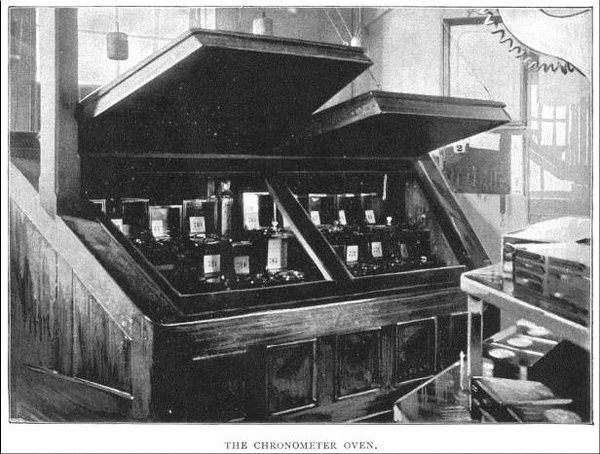
A recent article in Antiquarian Horology had a section on chronometer testing facilities in 19th-century Germany.
In Hamburg they had both an ice cellar and a gas-heated oven. The naval observatory in Wilhelmshaven was less well equipped:
'Neither an ice cellar nor a heating apparatus was available. The radiators of the central heating acted as makeshift for the latter, and tests in lower temperatures were conducted in winter by opening the windows. Sometimes the required temperature of 5º could not be reached due to mild weather'.
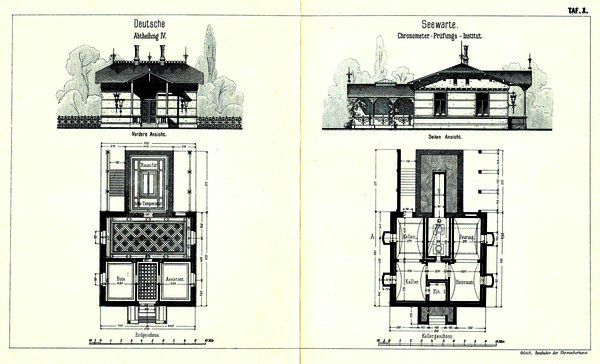
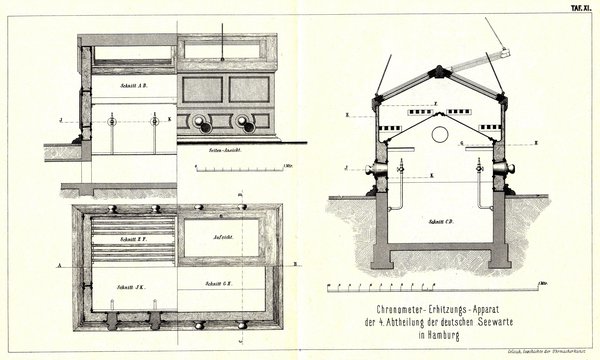
Manufacturers of chronometers could have their own heat and cold testing apparatus.
An oven and an ice-box used by the London-based watch and clockmakers Daniel Desbois and Sons are in the Museum of the History of Science in Oxford. Normally these two objects are kept in storage, but some years ago they were taken out for display in a temporary exhibition ‘Time Machines’.
When I visited the exhibition, the curator, Dr Stephen Johnston, told me that at first sight some visitors thought the ice box was a toilet!
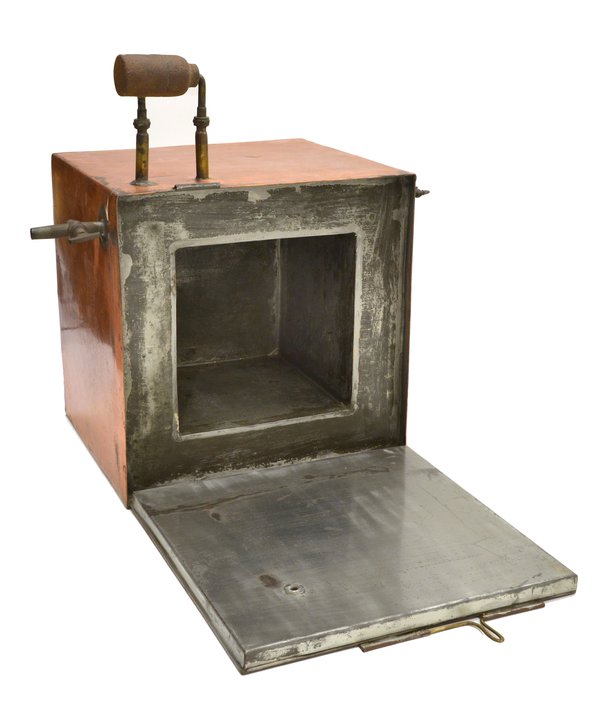
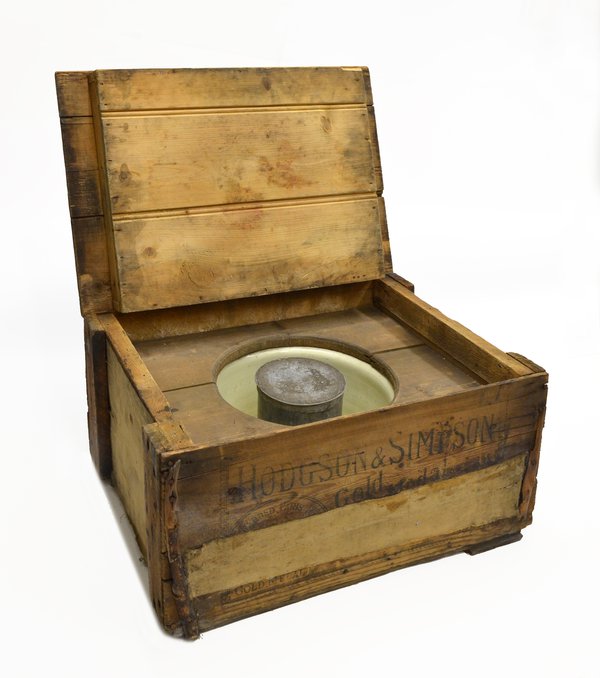
Sir George Airy, the late Astronomer Royal from 1835 to 1881, in one of his popular lectures drew a humorous comparison between the unhappy chronometers, thus doomed to trial, now in heat and now in frost, and the lost spirits whom Dante describes as alternately plunged in flame and ice.
He was referring to Dante’s La Divina Comedia, Book One: Hell, III, 76-82:
'There, steering toward us in an ancient ferry came an old man with a white bush of hair, bellowing: “Woe to you depraved souls! Bury here and forever all hope of Paradise: I come to lead you to the other shore, into eternal dark, into fire and ice.”'